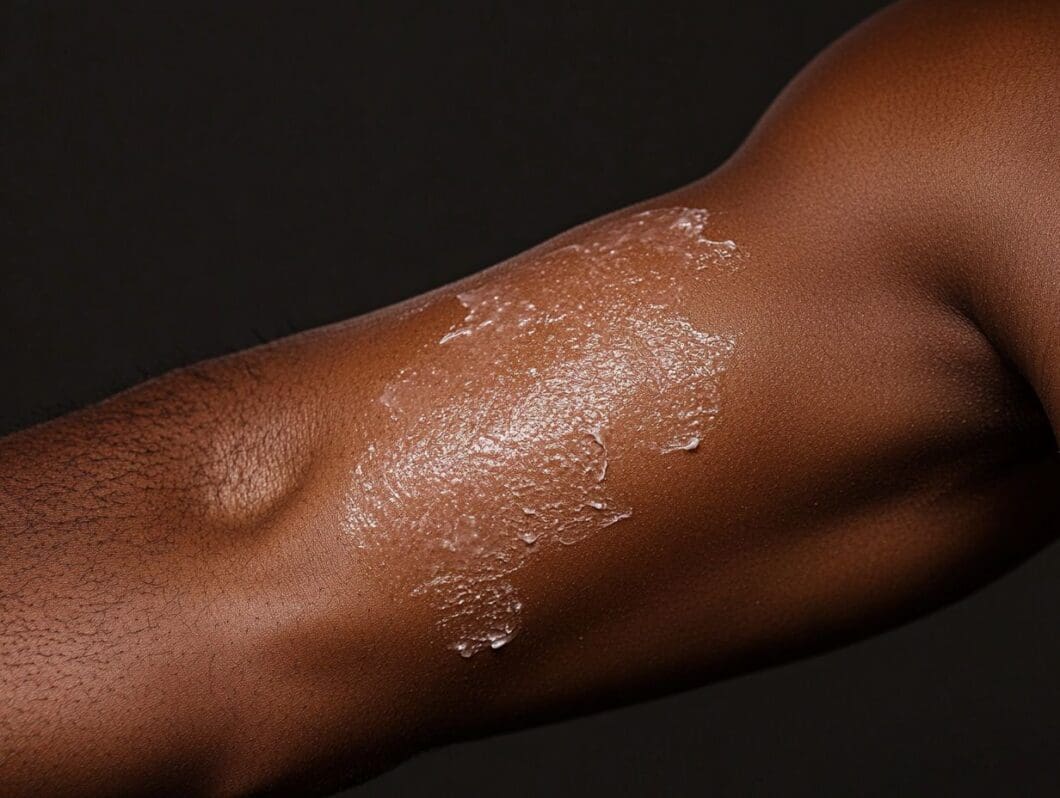Eczema is a common skin condition that affects millions, causing discomfort and frustration.
This article explores what eczema is, including its various types, and helps identify the key symptoms.
It also dives into the potential triggers behind flare-ups and discusses a range of treatment options from medications to natural remedies.
Additionally, practical tips for managing flare-ups and lifestyle changes to prevent future occurrences are provided.
Read on to gain a better understanding and take control of your skin health.
Key Takeaways:
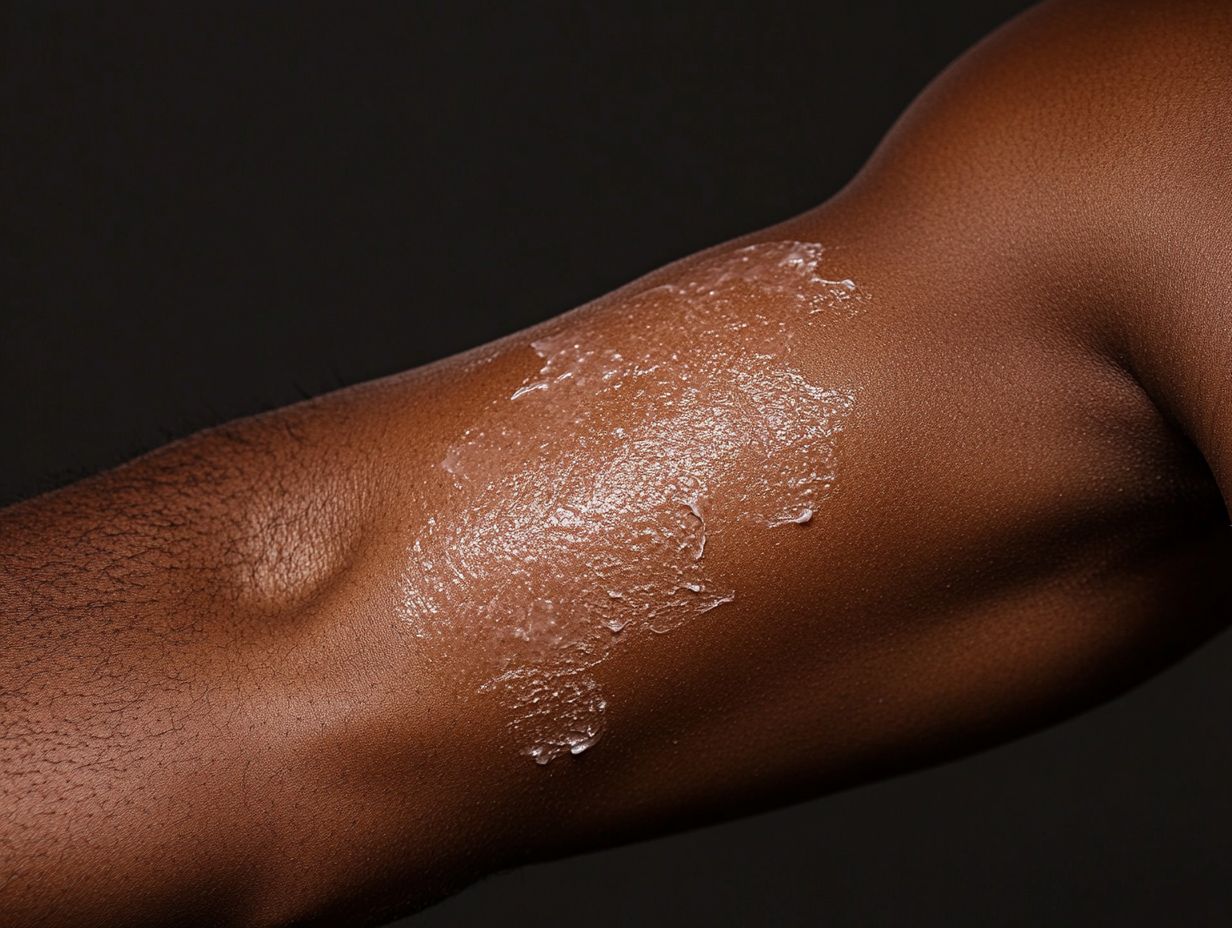
What is Eczema?
Eczema is a chronic dermatological condition marked by inflammation and irritation, impacting millions of individuals worldwide. This condition encompasses several types, including atopic dermatitis, contact dermatitis, neurodermatitis, nummular eczema, seborrheic dermatitis, and stasis dermatitis, each presenting unique symptoms and necessitating individualized management strategies.
A comprehensive understanding of the complexities of eczema is essential for recognizing its prevalence across various age groups, particularly among infants and children, while also addressing the health disparities frequently associated with this condition.
Definition and Types
Eczema, commonly known as atopic dermatitis, presents itself in several distinct forms, including contact dermatitis and neurodermatitis.
These various types of eczema can be identified by their specific triggers, symptoms, and the populations they affect. For example, contact dermatitis typically results from direct exposure to irritants or allergens, leading to localized inflammation, redness, and itching. Conversely, neurodermatitis is often triggered by chronic scratching, which may result in thickened, leathery skin in particular areas.
The prevalence of these types can differ; atopic dermatitis is frequently observed in infants and young children, while contact dermatitis is more prevalent among adults employed in industries exposed to potential irritants. Understanding the distinctions and overlaps among these conditions is essential for effective management and treatment.
Symptoms of Eczema
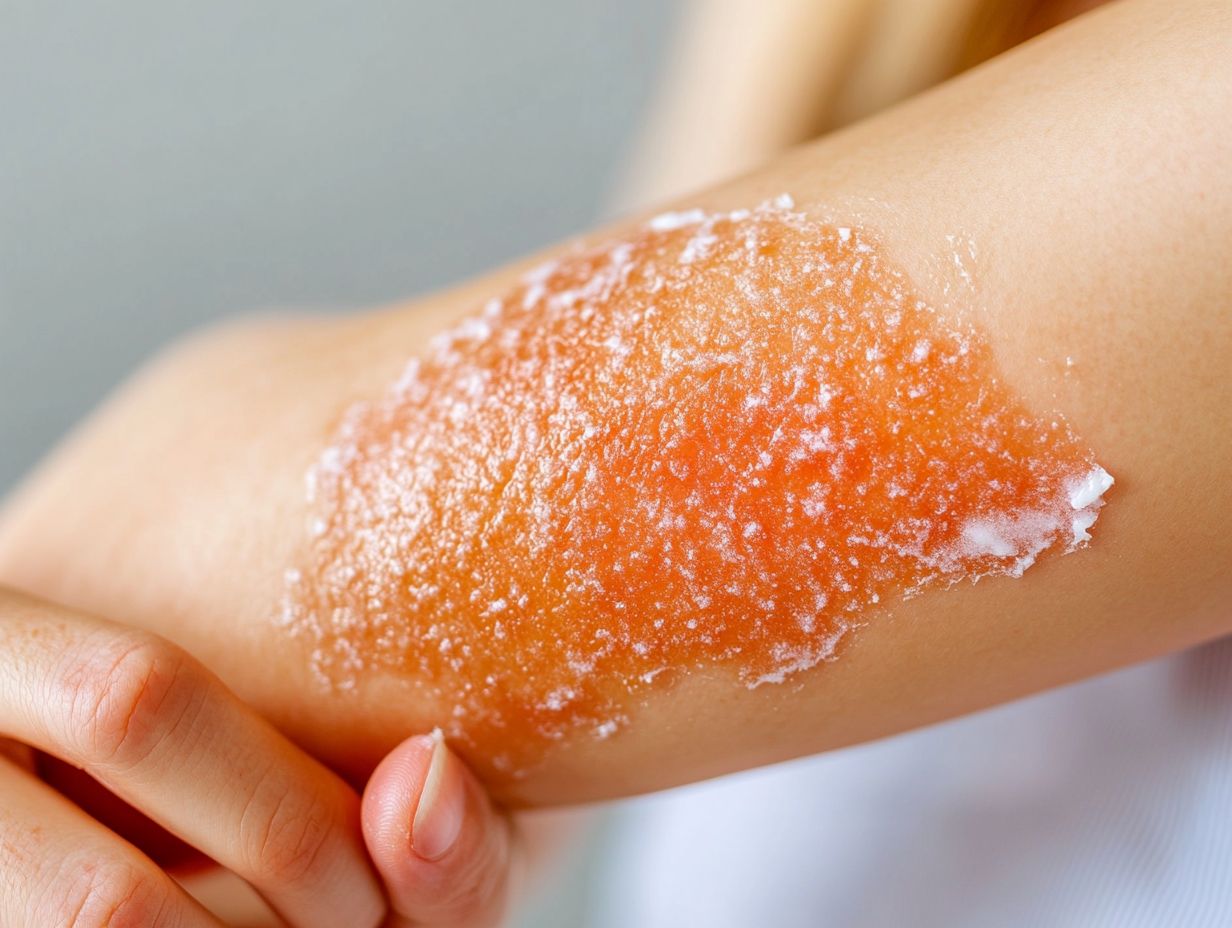
The symptoms of eczema can vary significantly, encompassing a range of manifestations from dry skin and an itchy rash to more severe inflammation. Such conditions may lead to discomfort and distress for those affected.
Identifying Common Symptoms
Identifying common symptoms of eczema is essential for effective management, as they typically include dry skin, itchy rashes, and general skin irritation.
These symptoms can present variably across different age groups, with children often experiencing more pronounced flare-ups due to environmental allergens or dietary triggers. In young children, for example, eczema frequently appears as red, scaly patches that may ooze fluid during severe outbreaks, potentially leading to secondary infections if not properly managed. Scratching can further exacerbate the condition, resulting in thickened skin or lichenification over time.
Understanding these specific manifestations allows caregivers to identify potential triggers such as detergents, soaps, or stress. This knowledge give the power tos them to take proactive measures to minimize complications and develop effective treatment plans tailored to individual needs.
Causes of Eczema
A comprehensive understanding of the causes of eczema is crucial for effective treatment and management. These causes typically involve a complex interplay of genetic factors, immune responses, and various triggers that compromise the integrity of the skin barrier.
Possible Triggers and Factors
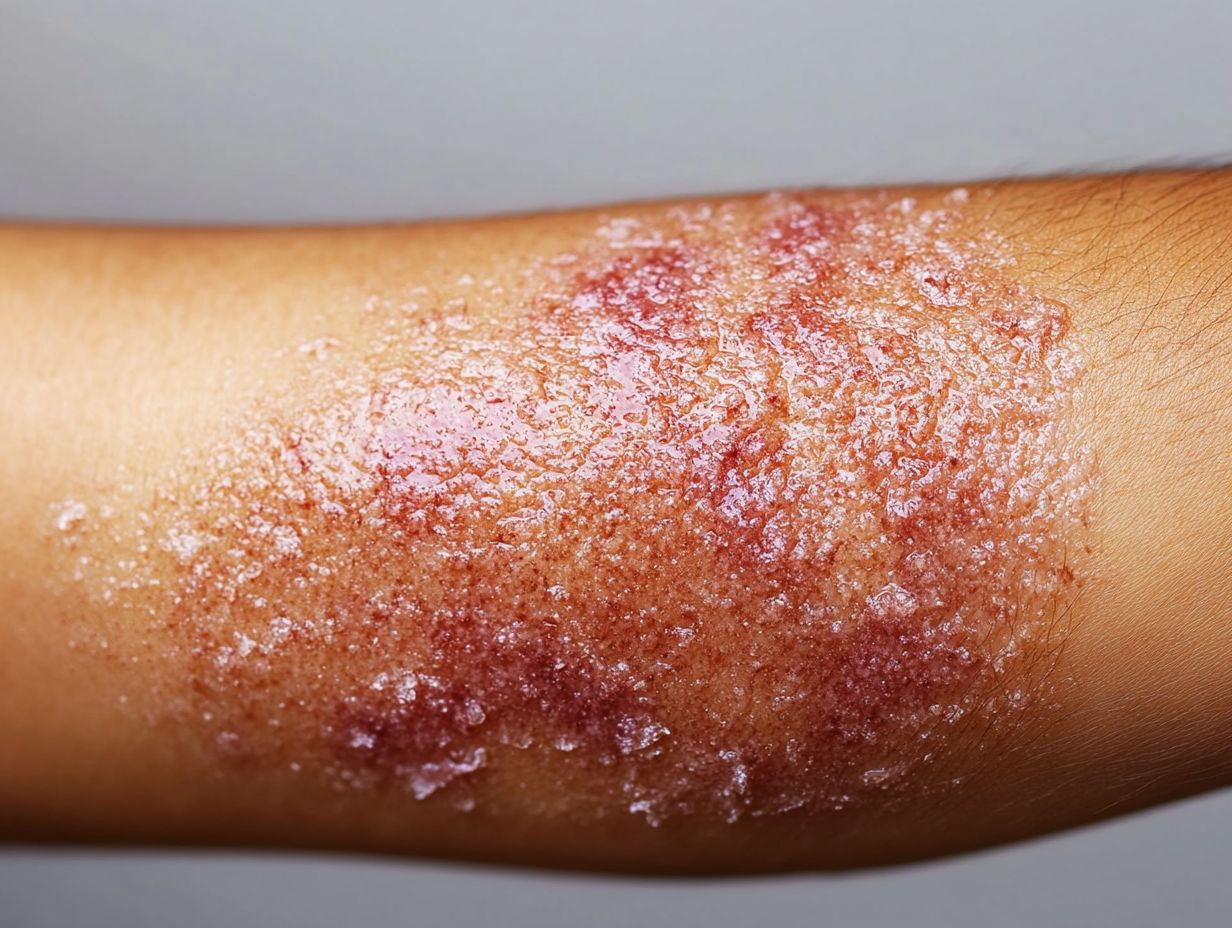
Various triggers can exacerbate eczema, including allergens, environmental factors, and lifestyle changes that contribute to skin irritation. For more information, check out Understanding and Treating Eczema.
While some individuals may exhibit strong reactions to pet dander or pollen, others might experience intensified symptoms from harsh soaps or specific fabrics. Environmental factors, such as extreme temperatures, humidity, and pollutants, also play a significant role in the condition. Identifying these specific triggers is crucial, as they can vary widely among individuals.
To mitigate exposure, individuals may consider implementing several lifestyle adjustments, including:
- Choosing hypoallergenic products,
- Wearing breathable fabrics,
- Maintaining a consistent skincare routine that incorporates moisturization.
Collectively, these adjustments can help soothe sensitive skin and minimize flare-ups.
Treatment Options for Eczema
Treatment options for eczema are varied and encompass a range of approaches, including topical steroids, biologic medications, and over-the-counter (OTC) remedies. These options provide different strategies for effectively managing symptoms.
Medications and Natural Remedies
Medications for eczema typically include topical steroids and biologic drugs, while natural remedies, such as moisturizing creams and lotions, can offer relief and enhance skin hydration.
Understanding the distinctions between these options is essential for individuals seeking effective management strategies. Topical steroids are frequently recommended for their immediate anti-inflammatory effects, providing significant relief from itching and flare-ups. However, the long-term use of these medications necessitates careful monitoring due to potential side effects.
Conversely, natural remedies, including shea butter and coconut oil, not only help soothe irritation but also promote a barrier function that retains moisture in the skin. Patients often explore both options, weighing the associated benefits and risks, to develop a personalized approach that aligns with their skin health needs and lifestyle.
Managing Eczema Flare-Ups
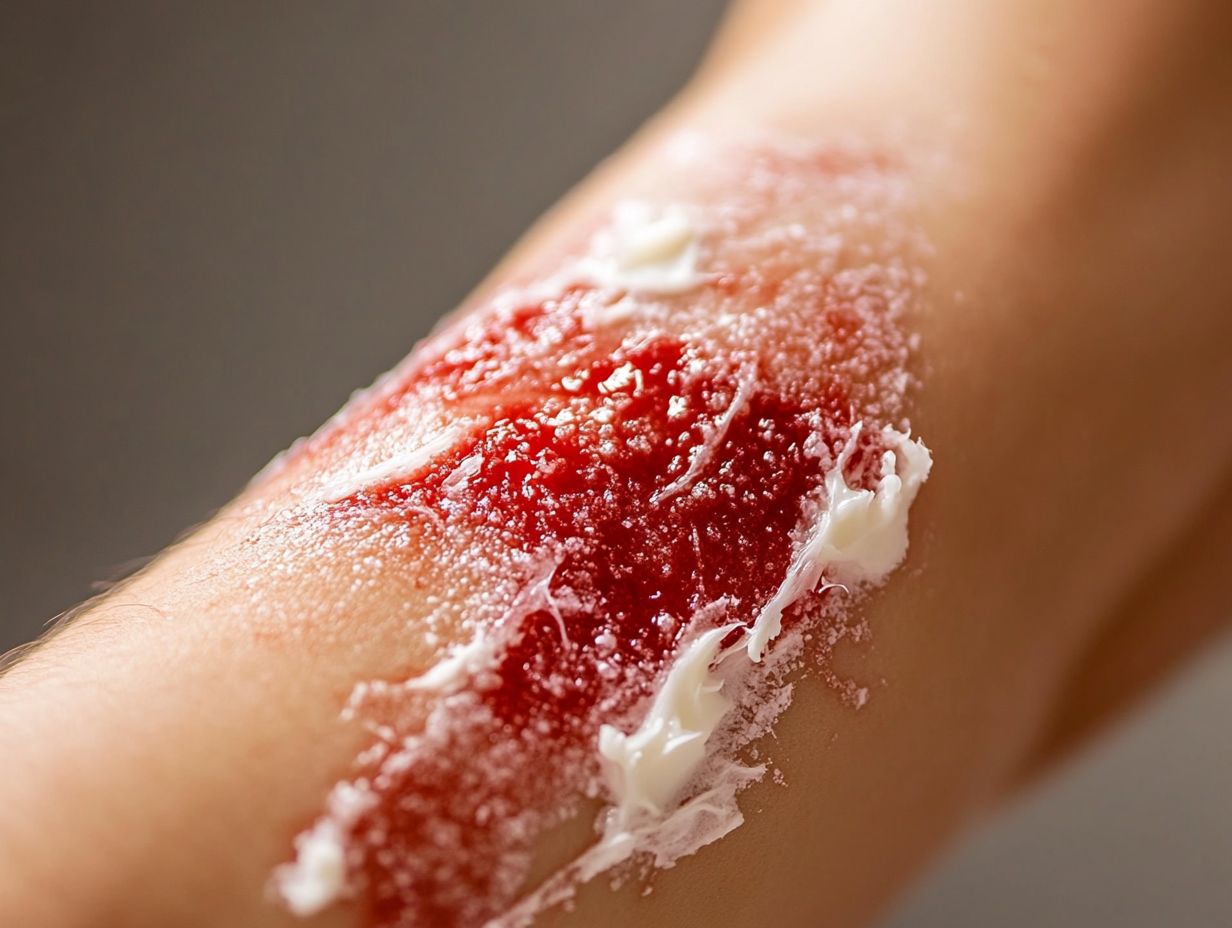
Effective management of eczema flare-ups necessitates a multifaceted approach, incorporating stress management techniques alongside targeted eczema care. This combination aims to provide relief from itching and alleviate the severity of symptoms.
Tips for Controlling Symptoms
Controlling the symptoms of eczema requires the implementation of effective care strategies and lifestyle modifications that promote emotional well-being.
Regularly moisturizing the skin with emollients, selecting fragrance-free products, and managing stress can significantly reduce the frequency and severity of flare-ups. It is also imperative to identify personal triggers, such as specific foods or environmental factors, in order to develop a tailored prevention plan.
Incorporating a gentle cleansing routine is essential for maintaining skin integrity, while wearing breathable fabrics may help to minimize irritation. Additionally, fostering a supportive environment with understanding family and friends can enhance emotional resilience and improve the overall quality of life for individuals managing eczema.
Preventing Eczema
Preventing eczema necessitates an understanding of potential triggers and the implementation of proactive lifestyle modifications. Additionally, adopting an eczema-specific diet can support overall skin health.
Lifestyle Changes and Prevention Strategies
Lifestyle changes play a crucial role in the prevention of eczema, as they can effectively mitigate triggers and address health disparities in affected individuals. For more information, refer to Understanding and Treating Eczema.
By implementing a consistent skincare routine that includes gentle, fragrance-free moisturizers, individuals can significantly enhance skin hydration, which is vital for managing flare-ups. Additionally, incorporating a balanced diet rich in omega-3 fatty acids and antioxidants may promote skin health and reduce inflammation.
Engaging in regular physical activity not only enhances overall health but also contributes to effective stress management, which is another known trigger for eczema. Furthermore, minimizing exposure to identified irritants, such as harsh soaps or environmental allergens, fosters a safer living environment that supports improved skin health and overall well-being.


